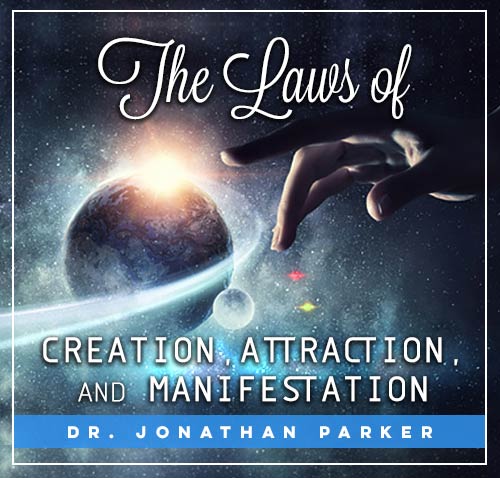Understanding the Law of Karma

Before diving in, please note: This post is for informational purposes only. If you’d like to know more about how we approach topics, feel free to check out our friendly Disclaimer Page.
Hey there, amazing readers! 
We’re committed to delivering quality posts, and your support (even just sticking around despite the ads) means everything to us. So, bear with us, and thanks for helping us keep the good vibes rolling. Now, on to the fun stuff!
TRANSLATE BUTTON AT THE END OF THE ARTICLE
Introduction to Karma
Karma, a concept deeply embedded in various spiritual and philosophical traditions, is often described as the spiritual law of cause and effect. It is the belief that our actions, whether good or bad, will influence our future experiences. Understanding karma involves recognizing the interconnectedness of our actions and their consequences. It emphasizes personal responsibility and the idea that our present circumstances are shaped by our past actions.
Origins and Meaning of Karma
The concept of karma originated in ancient Indian religions like Hinduism and Buddhism. In Sanskrit, "karma" means action or deed, reflecting the idea that our actions have repercussions. Karma is believed to be a cosmic force that maintains balance in the universe. According to this belief, every action we take, whether physical, mental, or emotional, creates a ripple effect that influences our future experiences.
Different Views on Karma
While the general concept of karma revolves around the idea of cause and effect, there are different interpretations of how karma operates. Some believe in instant karma, where the consequences of our actions are immediate, while others see karma as playing out over multiple lifetimes. Additionally, interpretations of karma can vary between different spiritual traditions, such as Hinduism, Buddhism, Jainism, and Sikhism.
How Karma Works
Karma operates on the principle that every action we take, no matter how small, has a corresponding effect. Positive actions result in positive outcomes, while negative actions lead to negative consequences. This cycle of cause and effect is believed to be continuous and unbroken. The intentions behind our actions also play a crucial role in determining the karmic consequences we face.
Factors Influencing Karma
Several factors influence the quality of our karma. The purity of our intentions, the level of awareness we bring to our actions, and the impact of our actions on others all contribute to the karmic outcomes we experience. It is not just the action itself but also the motivation behind it that determines the nature of the karma generated.
Types of Karma
In the realm of karma, there are different types that individuals may accumulate based on their actions. These include:
- Sanchita Karma: The accumulated karma from past actions that is yet to manifest.
- Prarabdha Karma: The karma that is currently unfolding and influencing our present circumstances.
- Kriyamana Karma: The karma we create through our present actions, shaping our future experiences.
The Cycle of Karma
The cycle of karma is characterized by the continuous interplay of actions and their consequences. Positive actions lead to positive outcomes, while negative actions result in negative repercussions. This cycle is believed to be unending until one gains a deep understanding of the karmic process and breaks free from the cycle of cause and effect.
Reaping the Fruits of Karma
Reaping the fruits of karma involves experiencing the consequences of our past actions, whether positive or negative. It is a reminder that every action we take has a ripple effect that will eventually come back to us. By accepting responsibility for our actions and their outcomes, we can learn and grow from the karmic lessons presented to us.
Karma in Different Cultures
While the concept of karma is most commonly associated with Indian religions like Hinduism and Buddhism, similar ideas exist in various cultures around the world. For example, the concept of "you reap what you sow" in Christianity reflects a similar understanding of the law of cause and effect. Indigenous cultures also have beliefs that align with the principles of karma.
How to Create Good Karma
Creating good karma involves cultivating positive intentions and engaging in actions that benefit others. Acts of kindness, compassion, and generosity are all ways to generate positive karma. By aligning our actions with ethical principles and striving to make a positive impact on the world around us, we can accumulate good karma that will lead to favorable outcomes.
Breaking Free from Negative Karma
Breaking free from negative karma requires self-awareness, reflection, and a willingness to change. By recognizing the patterns of negative behavior that contribute to harmful karma, we can make conscious efforts to break these cycles. Practices like mindfulness, forgiveness, and self-reflection can help us release negative karma and move towards a more positive future.
Living in Harmony with Karma
Living in harmony with karma involves embracing the interconnectedness of our actions and their consequences. By cultivating mindfulness, compassion, and ethical behavior, we can align ourselves with the principles of positive karma. This harmonious way of living involves making conscious choices that benefit not only ourselves but also the greater good. By being mindful of our actions and their impact, we can create a more harmonious and balanced existence.
Conclusion
In conclusion, understanding the law of karma involves recognizing the intricate relationship between our actions and their consequences. By cultivating positive intentions, engaging in ethical behavior, and taking responsibility for our actions, we can create a future guided by good karma. While the concept of karma may vary across different cultures and traditions, its underlying principle of cause and effect remains universal. By living in harmony with karma, we can navigate life with greater awareness, compassion, and a deep understanding of the interconnectedness of all beings.

The Enlightenment Journey is a remarkable collection of writings authored by a distinguished group of experts in the fields of spirituality, new age, and esoteric knowledge.
This anthology features a diverse assembly of well-experienced authors who bring their profound insights and credible perspectives to the forefront.
Each contributor possesses a wealth of knowledge and wisdom, making them authorities in their respective domains.
Together, they offer readers a transformative journey into the realms of spiritual growth, self-discovery, and esoteric enlightenment.
The Enlightenment Journey is a testament to the collective expertise of these luminaries, providing readers with a rich tapestry of ideas and information to illuminate their spiritual path.
Our Diverse Expertise
While our primary focus is on spirituality and esotericism, we are equally passionate about exploring a wide range of other topics and niches 

To ensure we provide the most accurate and valuable insights, we collaborate with trusted experts in their respective domains 
Our blog originally focused on spirituality and metaphysics, but we’ve since expanded to cover a wide range of niches. Don’t worry—we continue to publish a lot of articles on spirituality! Frequently visit our blog to explore our diverse content and stay tuned for more insightful reads.


































































